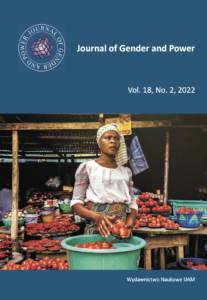Women and Tax Regime in Ijebu Province of Southwestern Nigeria, 1918–1949
Women and Tax Regime in Ijebu Province of Southwestern Nigeria, 1918–1949
Author(s): Titilope Olusegun OlalereSubject(s): Gender Studies, Pre-WW I & WW I (1900 -1919), Interwar Period (1920 - 1939), WW II and following years (1940 - 1949)
Published by: Uniwersytet Adama Mickiewicza
Keywords: women; tax regime; Ijebu Province; Southwestern Nigeria;
Summary/Abstract: A tax regime is a mechanism of tax rates, regulations, and scope that comprise the taxation approach or philosophy of a government. Existing historical studies have engaged the dynamics of women and tax revolts in some parts of Southern Nigeria, with particular emphasis on Aba and Egba women. Historical studies have also robustly recognised the socio-economic significance of Ijebu women to economic growth in Southwestern Nigeria. Despite Ijebu women’s contributions, studies have not adequately documented the dynamics of Ijebu women and the tax regime during the period under review. The paucity of historical engagement of Ijebu women’s tax regime experience has prevented an understanding of the numerous factors that informed women’s taxation, the dimensions of the tax receipt regime against Ijebu women and the atten- dant gender implications. The study adopts a historical research methodology. It uses primary and secondary sources. For primary data, Archival materials on Ijebu women and taxation during the colonial period were sourced from the National Archives, Ibadan. Archival documentations were complemented with oral interviews. The secondary sources includes published materials on women and taxation in Southern Nigeria in libraries and internet sources. The data were sub- jected to thematic and descriptive analysis. Findings reveal that the prominence of Ijebu Women in the marketplace, coupled with their unwavering financial exploits in the 19th century, provoked draconian taxation against them. On the dimensions of taxes levied against women, Ijebu women were compelled to pay flat rate alongside their male counterparts. Besides, the women faced har- rowing experiences of the tax receipt regime. The tax regime in colonial Ijebu has implications on gender. Apart from inducing physical, economic, and psychological pains on Ijebu women, the tax regime forced some women to stage a revolution against the colonial government and its repre- sentatives. This study suggests that subsequent historical interrogations could engage ideologies in Ijebu women’s petitions against the colonial government.
Journal: Journal of Gender and Power
- Issue Year: 18/2022
- Issue No: 2
- Page Range: 9-29
- Page Count: 21
- Language: English

